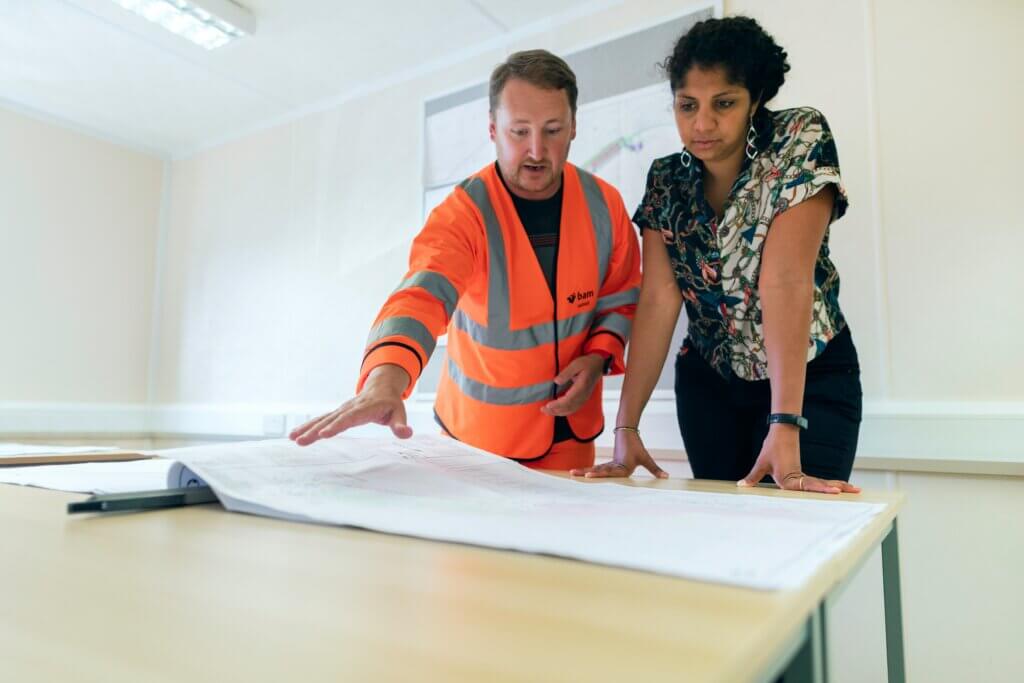What is an Engineering Geologist?
Engineering Geologists do research and studies to identify how human-made structures and the earth interact. Their responsibilities may include environmental, geotechnical, or geological research.
Engineering geology is a branch of geology that looks at man-made structures and urban development from a geological point of view. The goal is to find out what geologic risks might be present. A person with advanced training in soil and rock mechanics, hydrology, geotechnics, and civil design is an Engineering Geologist. Engineering Geologists are in a position that is unrivalled when it comes to their ability to comprehend earth-structure interactions and recommend actions to reduce the risk of potential hazards.In the real world, engineering geology works with construction and civil engineering teams to look into any problems that might be caused by the ground. They give suggestions to optimise the safety of any endeavour.
Responsibilities
Engineering Geologists are responsible for a wide range of tasks, which might include:
- Creating geological results reports, including maps, charts, and other visual aids to assist in interpreting data.
- Conducting field geological surveys to locate mineral reserves and associated dangers such as landslides and sinkholes.
- Evaluating the physical properties of soil and rock samples to determine the types and locations of minerals in the earth’s crust
- Determining the sorts of rocks found in a region by researching their chemical composition and structure.
- Conducting research on issues such as fault lines, earthquakes, and landslides to understand better how they occur and how they might be forecast
- Creating engineering designs and plans for buildings such as highways, bridges, dams, airports, and pipelines.
- Conducting environmental impact assessments of proposed construction projects to determine the impact they will have on surrounding ecosystems and habitats
- Conducting geological explorations to identify possible new business opportunities, such as oil fields or mining sites
- Conducting geological research to find mineral deposits that may be extracted for economic purposes
Salary
Salary ranges for Engineering Geologists vary depending on their degree of education, years of experience, and the sort of work they conduct. Employees in private firms often earn more than those in government or non-profit organisations.
The national UK average salary for an Engineering Geologist is £30,092, ranging from £22,000 to £41,000. The average additional cash compensation amounts to £2,446 (ranging from £733 to £8,156). The average London salary for an Engineering Geologist is £37,394, ranging from £28,000 to £49,000.
Working hours and work location
Offices, labs, and construction sites are just some of the places where Engineering Geologists put in a day’s work. They may spend a lot of time working outside in all kinds of climates. They may also have to do fieldwork in different places in the UK and around the world. An average work week for an Engineering Geologist is 40 hours, however, this might vary depending on factors such as meeting deadlines or being in the field. In the event of a natural disaster like a landslide, earthquake, or flood, certain Engineering Geologists may be on call around the clock.

What to expect
Local governments can ask Engineering Geologists to analyse the soil and measure how much rain falls in order to reduce the negative effects of urban growth on the environment. Engineering Geologists can provide useful advice for building projects in heavily populated regions. This contains advice for foundation design, grading, shoring, and drainage. A Geotechnical Engineer could also look at the risk of soil liquefaction and provide a full risk analysis. Large civil engineering projects need meticulous planning and risk assessment. Engineering Geologists can do extensive investigations to explore all potential dangers. They can undertake geotechnical engineering investigations to make suggestions for foundation and shoring design.
Geological Engineering is used in every civil project to make the end result more stable and long-lasting. Geological Engineering is also often required for modest projects. Tiny buildings strive to maximise space in crowded urban contexts by digging deeper into the earth. Doing so offers hazards that require study to lessen the possibility of building failure. Engineering Geologists acquire local expertise that can be beneficial on building projects. When you hire a professional Engineering geologist for your construction project, you have access to a wealth of information about the area’s soils, rocks, and engineering concerns. You will get clear advice to make any new building project stronger and last longer. Engineering geology spans a wide variety of geological disciplines, and anyone working in the field will need to be familiar with and maybe specialise in:
- Natural disasters (rock failure/stability and earthquakes)
- Hydrogeology
- Geology of structural structures
- Near the Surface Geophysics
- Geomechanics / Rock mechanics
- Geology / Surface Processes
- Petrology (and its engineering relevance e.g. Rock characteristics) (and its engineering significance e.g. Rock properties)
- Remote sensing can help in field mapping.
- Geographic Information Systems (GIS)
- Contamination and Environmental Geology (or Geochemistry)
- Cross-over with resource geology to identify potential building material sources
- Mapping and sampling are examples of field procedures.

Qualifications
For entry-level jobs as an Engineering Geologist, you will need a bachelor’s degree in geology, earth science, civil engineering, or a related field. Because of the complexity of engineering geology projects, many companies look for applicants with at least a master’s degree in geology or a closely related discipline.
Entry without a degree or an HND is not permitted. The Geological Society has accredited a variety of first-year geoscience courses. After a period of suitable postgraduate experience, an approved degree normally qualifies you for membership (Fellowship) in the society. After a period of professional growth and suitable experience, it also awards chartered geologist certification (CGeol-minimum five years). To get chartered status, you must be a Fellow, achieve the requisite competencies, and participate in a validation interview. If you do not have a degree in geology or a degree approved by the Geological Society, you should contact the society. There is also an accreditation process for postgraduate MSc courses. With a background in civil engineering or the sciences, it is occasionally possible to get admittance into the sector through The Institution of Civil Engineers (ICE) and the Institute of Materials, Minerals, and Mining (IOM3)
Skills
must have skills:
For Engineering Geologists to be successful, they need to possess or acquire the following skills:
- Engineering skills: engineering expertise refers to a professional’s hands-on know-how and experience in their chosen industry. The skills necessary for an engineer to carry out their responsibilities effectively are, unsurprisingly, engineering skills. New goods, methods, and procedures can only be developed when an engineer has the necessary capabilities.
- Problem-solving skills: Engineering Geologists rely on their problem-solving abilities to address geological concerns. Natural calamities, such as earthquakes and landslides, can be lessened by employing their problem-solving abilities. They can use their problem-solving talents to find methods to avoid geological problems altogether.
- Communication skills: Engineering Geologists often work with other scientists and engineers, so they need to be good communicators. Clients and the general public may require them to explain geological processes and how those processes may affect a certain project. Both explaining complicated geological processes to people who aren’t experts and giving engineers technical details require strong communication skills.
- Fieldwork skills: The ability to undertake geological study in the field requires a set of specialised abilities known as “fieldwork.” These abilities include the capacity to recognise geological features, learn about the processes that formed them, and assess the dangers they represent to people and property. The capacity to gather and evaluate samples and make precise observations of one’s surroundings are also necessary fieldwork abilities.
- Scientific knowledge: Engineering Geologists rely on scientific understanding to deduce the environmental effects of geological processes. In doing so, they can better foresee how future changes to the earth can impact a building’s design and construction. The optimal course of action for a project is often determined with the use of scientific information, which they also employ.
Work experience
Training for Engineering Geologists is often acquired through an apprenticeship or internship. Apprenticeships and internships are great ways for aspiring Engineering Geologists to get paid experience in the field. Most internships and apprenticeships run between two and four years.
Career prospects
The number of jobs for Engineering Geologists is expected to grow faster than the national average over the next ten years. The demand for Engineering Geologists will be driven by the requirement to assess and minimise the effects of natural disasters on infrastructure projects such as landslides, floods, and earthquakes. Demand will also be driven by the need to figure out how planned projects like pipelines and roads will affect the environment in order to make them less harmful. One way for an Engineering Geologist to go up the corporate ladder is to take on more challenging projects or manage a bigger geologist team. They can also become university professors or launch their own consulting firms. Engineering Geologists may anticipate an increase in salary and in the variety of options available to them as they gain expertise in the field.
Related Courses
- Bachelor’s degree in geology, earth science, civil engineering or a related field.
- Master’s degree in geology or a related field.





